From Romania to Manchester – complex family dynamics take to the stage
Julia Pascal's new play explores the relationship between three sisters and their parents
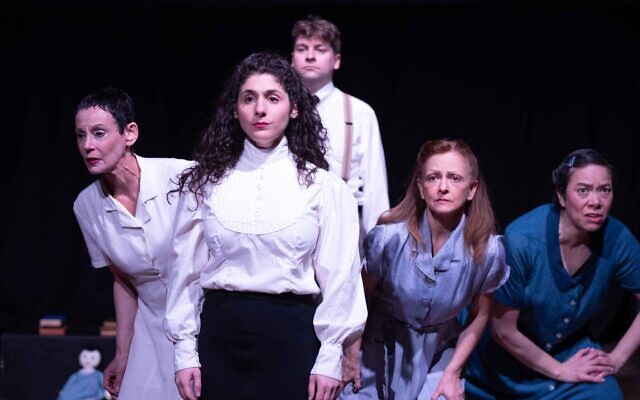
A Jewish woman surviving the German occupation in Guernsey during the Second World War. A political theorist facing death after being deemed ‘undesirable’ by the Nazis. A Jewish matriarch forced to confront discomforting truths around the Israeli-Palestinian conflict. Through her provocative body of work, which includes The Holocaust Trilogy, As Happy as God in France and Crossing Jerusalem, playwright and director Julia Pascal has shown her adeptness at shining a light on Jewish women and bringing stories to the stage that might otherwise disappear from history for good.
But never has Pascal, who was the first woman to ever direct a play at the National Theatre, turned the spotlight on herself – until now.
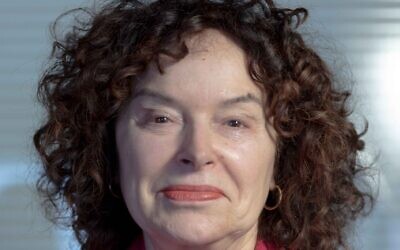
The prolific 73-year-old playwright’s latest work, A Manchester Girlhood, which explores the complex dynamics between three sisters and their Romanian-Jewish parents, is her most biographical to date and entirely inspired by the lives of Pascal’s own mother, aunts and grandparents. Having opened last week in Blackpool and Manchester, the production is moving to London for further performances next month.
The narrative begins in Bucharest, in 1910, as a young Esther Goldenberg – Pascal’s maternal grandmother – enters an arranged marriage with Emanuel Jacobs before the young couple leave behind their homeland for a new life in Manchester.
Speaking from rehearsals over an engaging Zoom chat, Pascal, who was an actress and journalist before turning her hand to writing plays, explains: “They had four children, a son and three girls – and those three girls, one of whom was my mother, Isabel, were very important in my life. My grandparents brought me up from babyhood and hearing stories of Romania and my aunts’ and mother’s lives, is something I suppose I’ve been processing most of my life.”
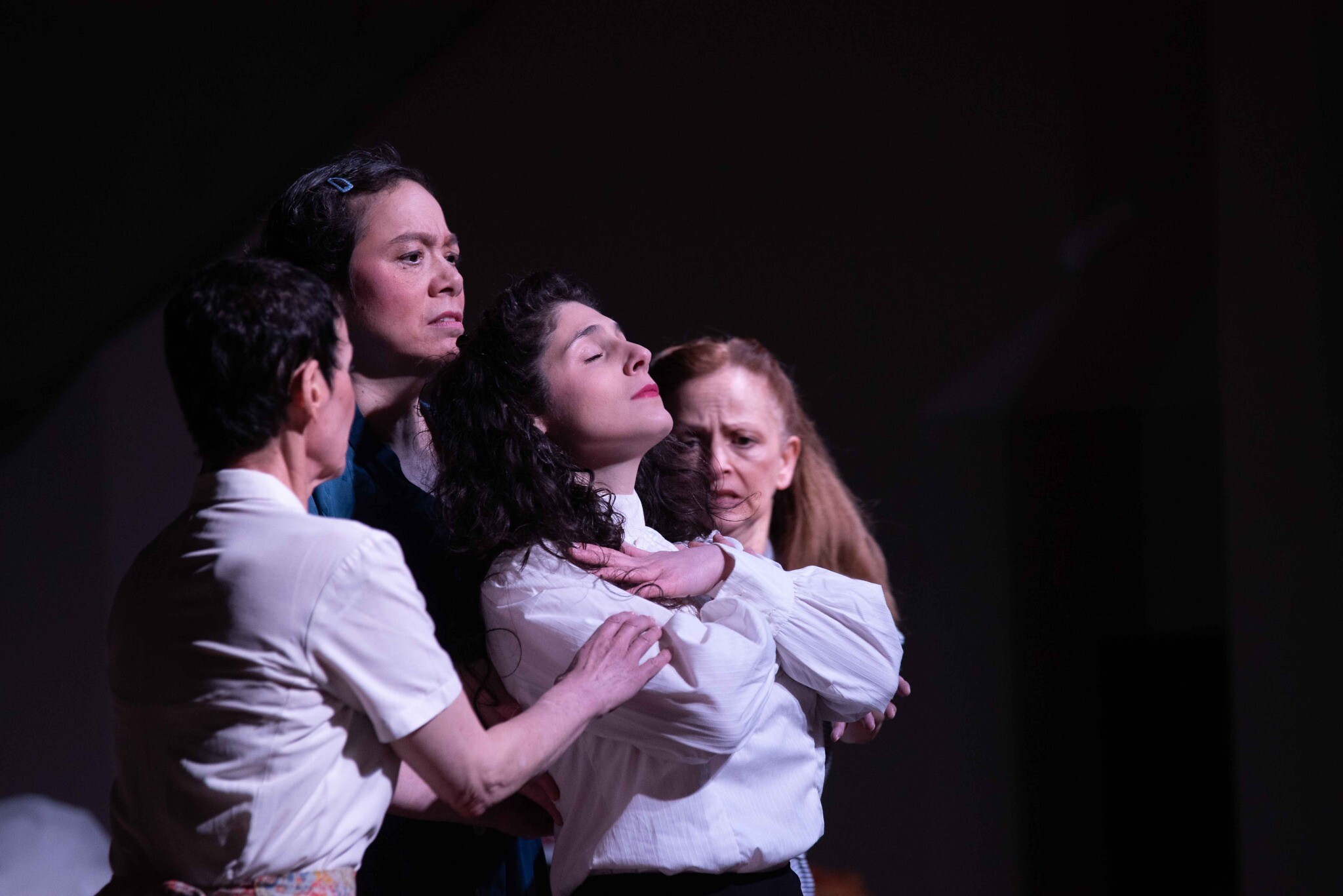
Through these memories she narrates the stories of her matriarchs and uses “their voices in my head” to construct their conversations. Pascal acknowledges that in telling her own family story, there’s little room for objectivity and the story she relates is ultimately “my version of it, because I was the daughter or the niece of these women.”
She speaks openly too about her strained relationship with her mother. Pascal relates how she was largely brought up by her grandparents, and describes Isabel, who wanted to be an actress, as “a dreamer, a luft mensch with her head in the clouds and quite a narcissistic personality.”
Her memories of her aunts are contrastingly different. She smiles and there’s a sense of pride as Pascal relates how Edith, who was the second eldest, joined the British Army during the Second World War, gained authority as a soldier and became the first woman munitions officer. Meanwhile Pearl, the youngest of the sisters, went on a blind date just before D-Day and ended up marrying an American-Jewish soldier before going to live in the United States after the war.
“All of them find their own way to escape from this rather stifling Jewish provincial family,” notes Pascal.
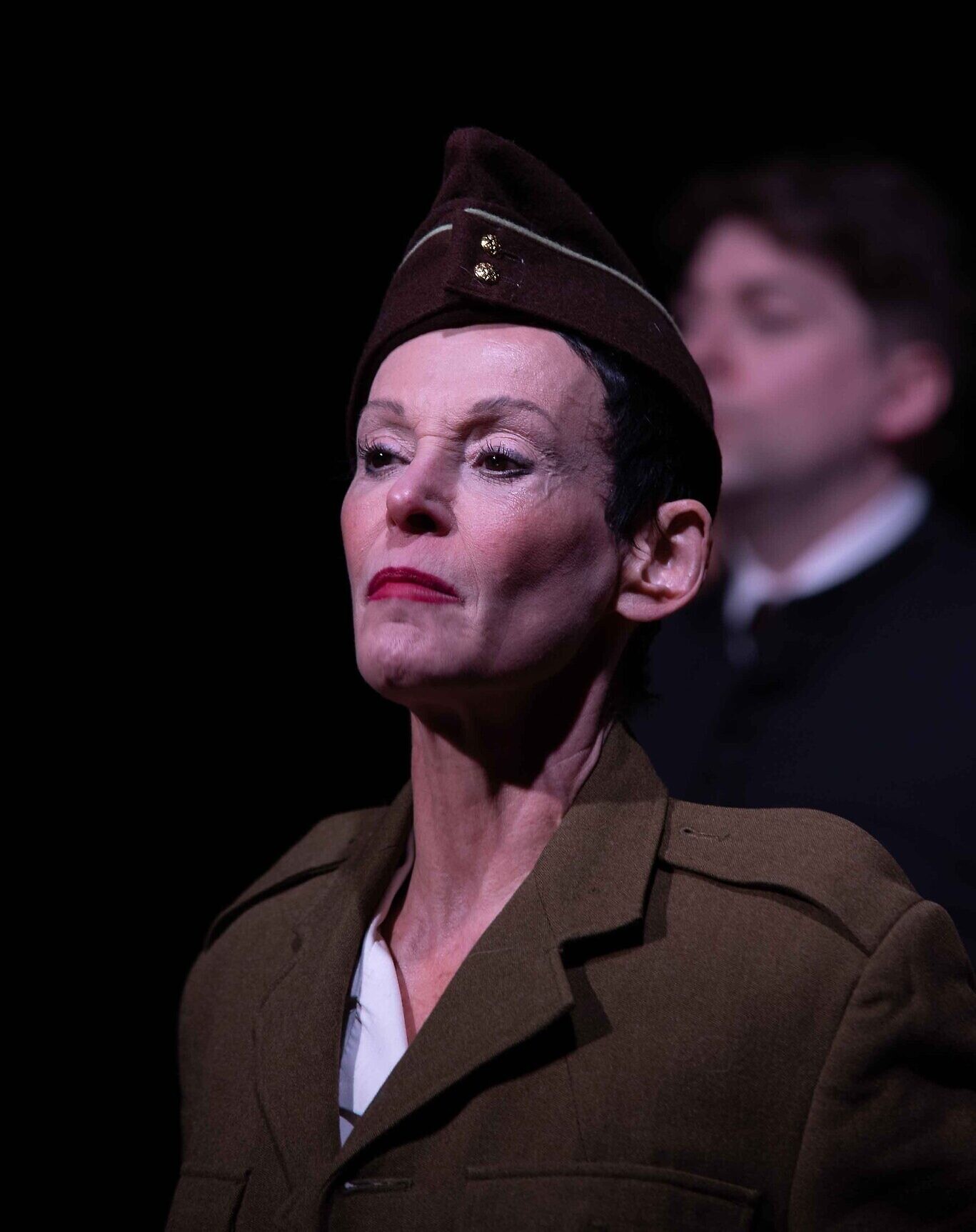
For actress Giselle Wolf, who portrays Edith, the play highlights not only how all three sisters desired to forge their own paths in life, but also how her character – like many second-generation immigrants at that time – had “an absolute feeling of needing to belong.”
Wolf explains: “Edith felt different and wanted to belong, to be British. She didn’t want to be foreign or have parents with accents. She wanted to belong so much she thought about becoming a Christian at one point. She never did convert, but she almost went through with the process. When the war came, she had a chance to join up and fight for a country that she loved and wanted to be part of.”
Edith enjoyed a successful military career and in later years remarked how the war years were “the most wonderful time of her life”, having proven to others – but more importantly herself – that she was capable of greater things.
After the war she was offered a place at Cambridge or Oxford, which all officers received after the war – but turned it down and got married to a Christian pilot, which ended in divorce. She then married a Jewish man, who sadly died after ten years. She had two sons with him and was a good mother. Edith went on to become a public speaker and teacher at Manchester University. Pascal says: “She found some fulfilment in teaching, but did say to me many years later, ‘I was foolish, I should have taken the offer to go to Oxford or Cambridge.’ As a result, she pushed me when I was in two minds about doing my English degree. When later I did my PhD, by which time she was dead, I had her voice in my head telling me, ‘Go on, do it, you must do it.’”
Edith’s personal feelings about education are unsurprising given that her mother, Esther, actively encouraged her daughters to keep learning.
“My grandfather wanted them to leave school and earn money, because they didn’t have much,” reveals Pascal. “But Esther, who didn’t receive an education, really stood up to him for the first time in her life and said, ‘No, they will stay until they’re 16 so that they get enough education to become secretaries and therefore have some job.’”
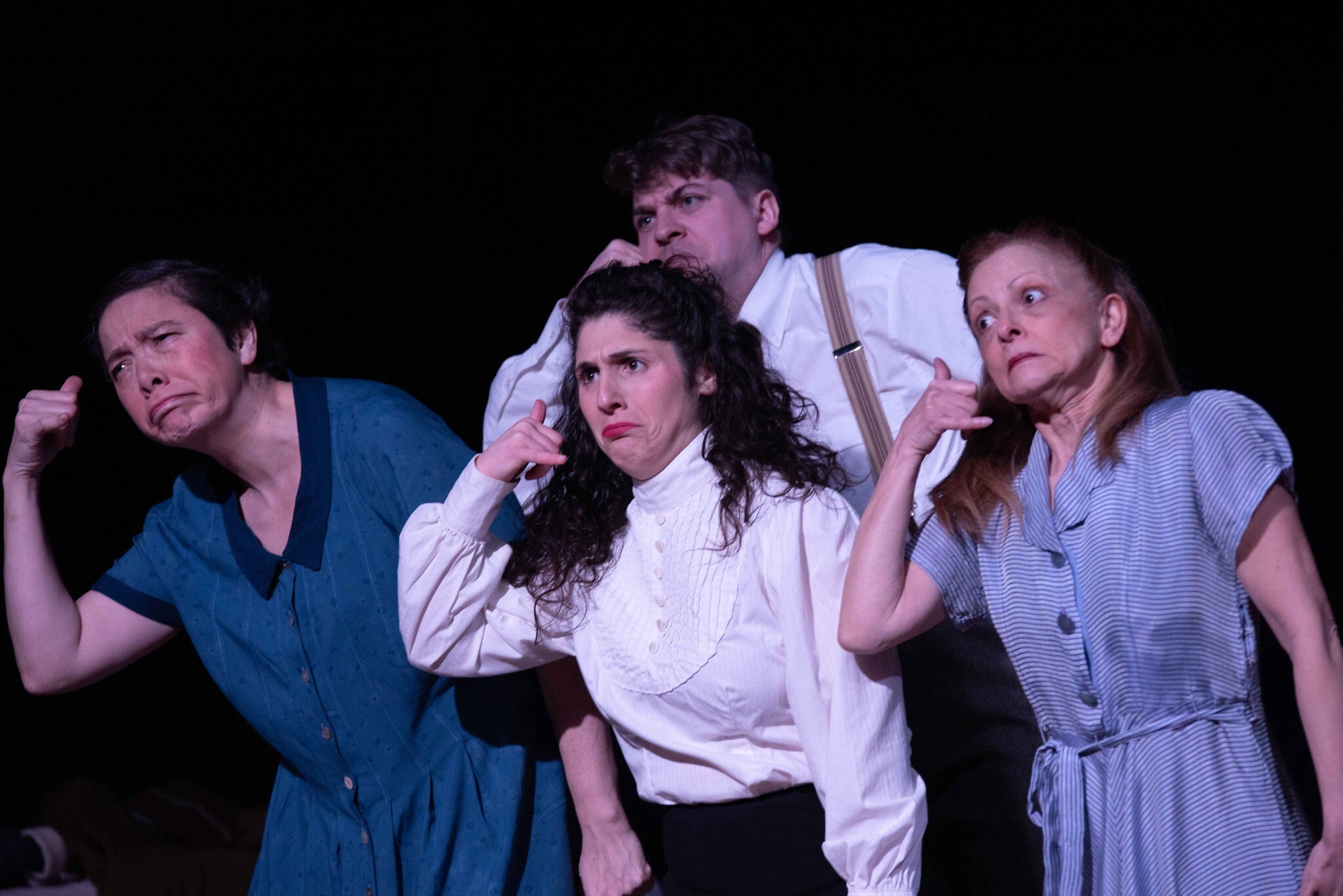
Esther’s act of defiance was a first step towards the women receiving the education she felt they deserved, but Pascal believes her mother and her aunts did not entirely fulfil their potential because of the times in which they lived.
“I feel a kind of fury on their behalf that they weren’t given the access to this life of the mind,” she tells me.
Actress Rosie Yadid (recently seen in Bad Jews at the Arts Theatre), who plays Esther, sees her character as wanting to “empower” her daughters, but “only up to a point. Esther insists upon having her daughters educated, but ultimately still wishes for them to become housewives. Given a different context, she would have wanted more for them, but this was all she knew and she didn’t want her daughters to stray too far away from that world.”
The point around education is one keenly felt by Pascal and lies at the heart of A Manchester Girlhood, which drives home how without education women are “denied a voice” – and without a voice they are essentially erased from history.
“I think Jewish women have been silenced,” she says. “Doubly so in fact, because British society is patriarchal and Jewish society is patriarchal. Women have not been heard. So I think it’s my duty to write the complexity and roughages of our lives, to represent the nuances of our mothers’ lives and our grandmothers’ lives.”
A Manchester Girlhood arrives at Burgh House, Hampstead on 17 May; and JW3, West Hampstead, from 21 to 23 May

Thank you for helping to make Jewish News the leading source of news and opinion for the UK Jewish community. Today we're asking for your invaluable help to continue putting our community first in everything we do.
For as little as £5 a month you can help sustain the vital work we do in celebrating and standing up for Jewish life in Britain.
Jewish News holds our community together and keeps us connected. Like a synagogue, it’s where people turn to feel part of something bigger. It also proudly shows the rest of Britain the vibrancy and rich culture of modern Jewish life.
You can make a quick and easy one-off or monthly contribution of £5, £10, £20 or any other sum you’re comfortable with.
100% of your donation will help us continue celebrating our community, in all its dynamic diversity...
Engaging
Being a community platform means so much more than producing a newspaper and website. One of our proudest roles is media partnering with our invaluable charities to amplify the outstanding work they do to help us all.
Celebrating
There’s no shortage of oys in the world but Jewish News takes every opportunity to celebrate the joys too, through projects like Night of Heroes, 40 Under 40 and other compelling countdowns that make the community kvell with pride.
Pioneering
In the first collaboration between media outlets from different faiths, Jewish News worked with British Muslim TV and Church Times to produce a list of young activists leading the way on interfaith understanding.
Campaigning
Royal Mail issued a stamp honouring Holocaust hero Sir Nicholas Winton after a Jewish News campaign attracted more than 100,000 backers. Jewish Newsalso produces special editions of the paper highlighting pressing issues including mental health and Holocaust remembrance.
Easy access
In an age when news is readily accessible, Jewish News provides high-quality content free online and offline, removing any financial barriers to connecting people.
Voice of our community to wider society
The Jewish News team regularly appears on TV, radio and on the pages of the national press to comment on stories about the Jewish community. Easy access to the paper on the streets of London also means Jewish News provides an invaluable window into the community for the country at large.
We hope you agree all this is worth preserving.





















